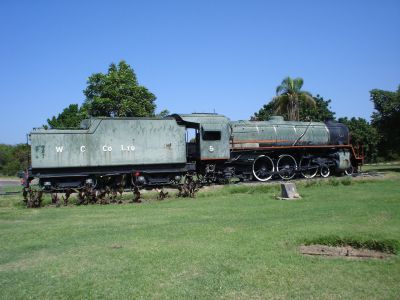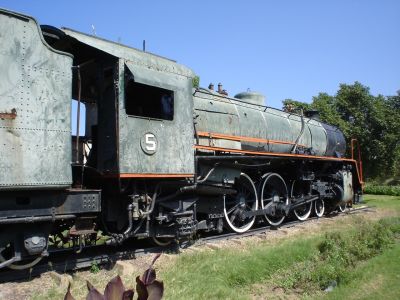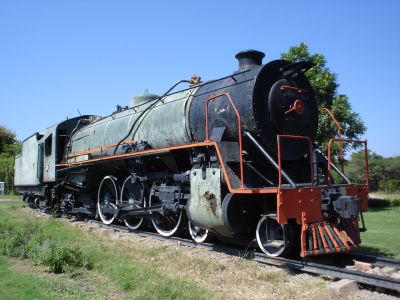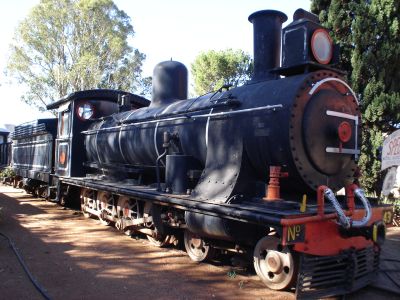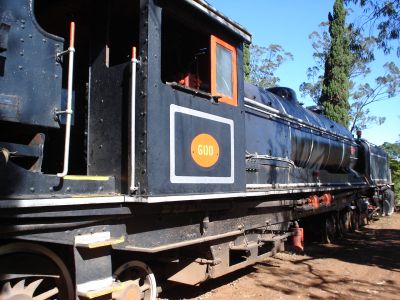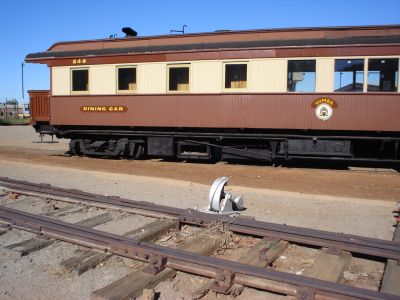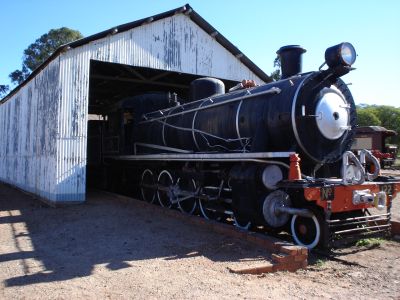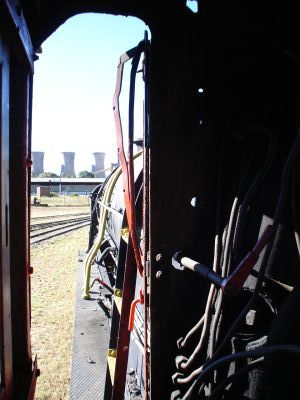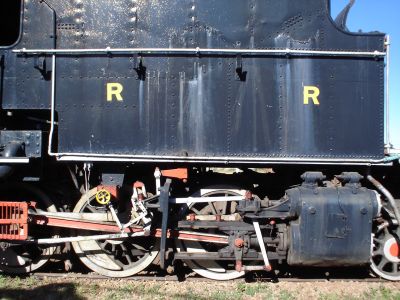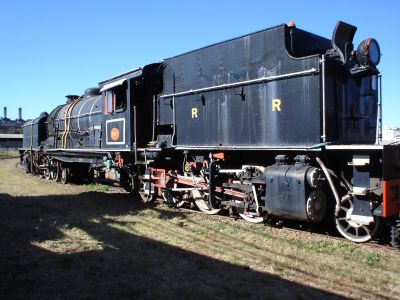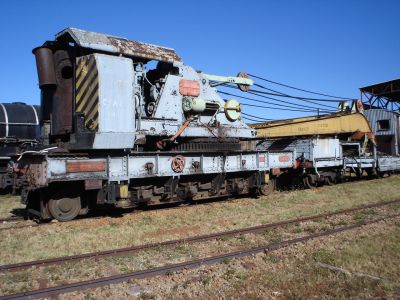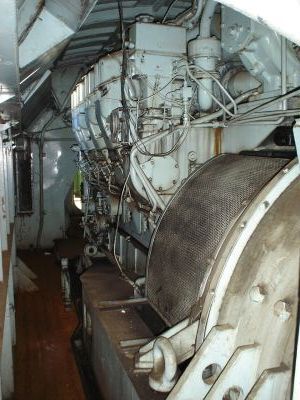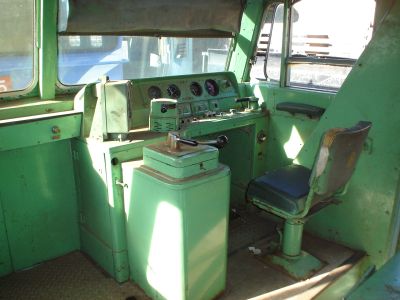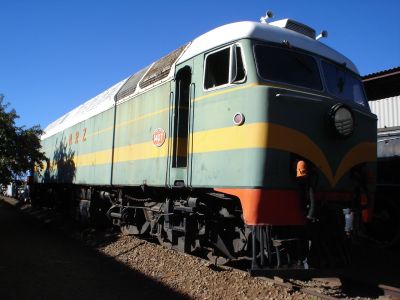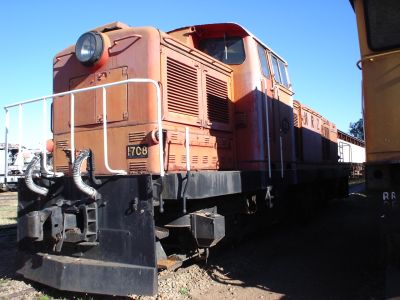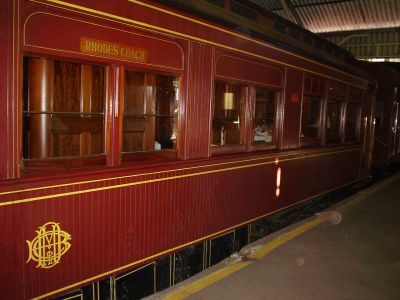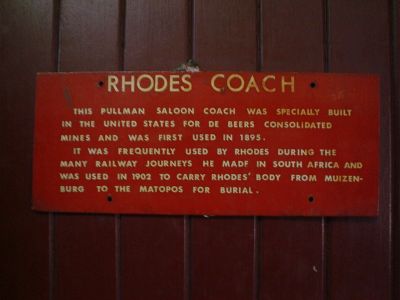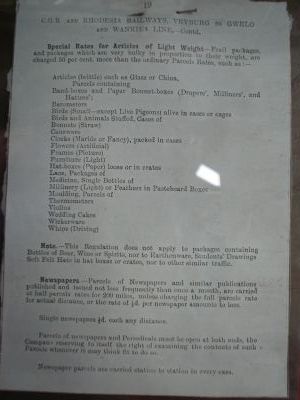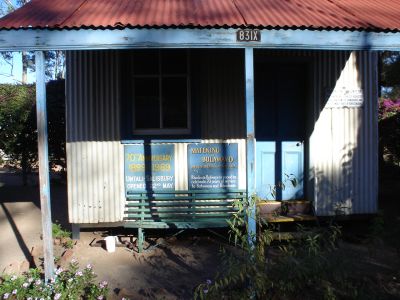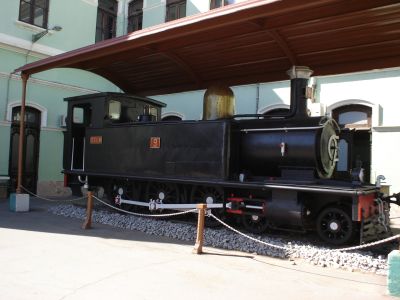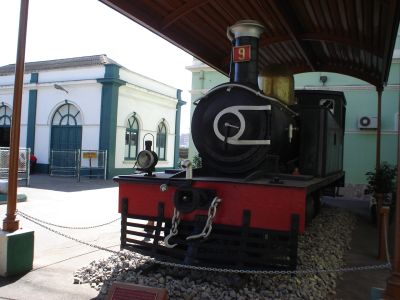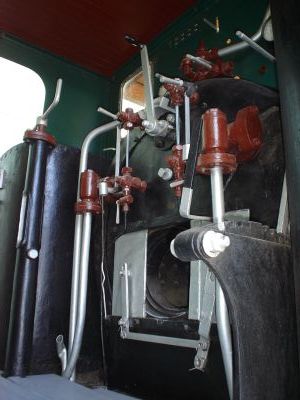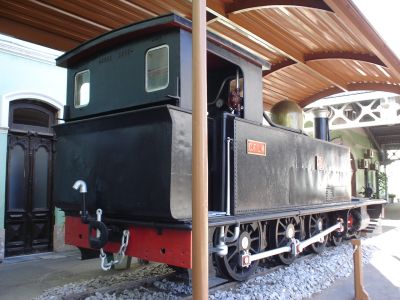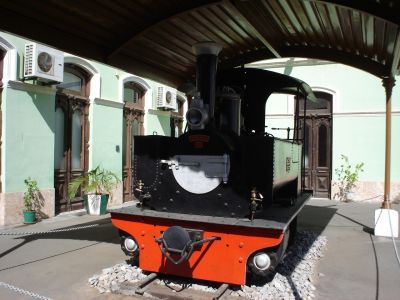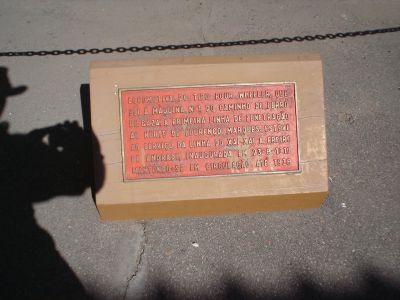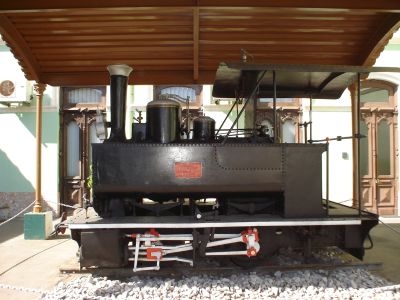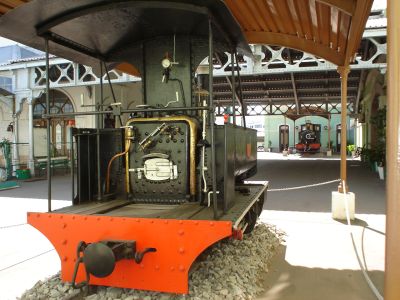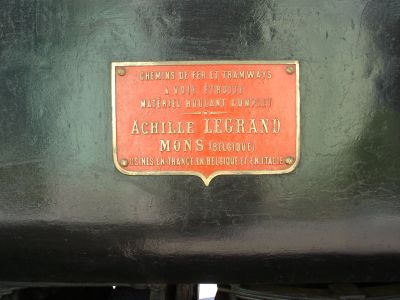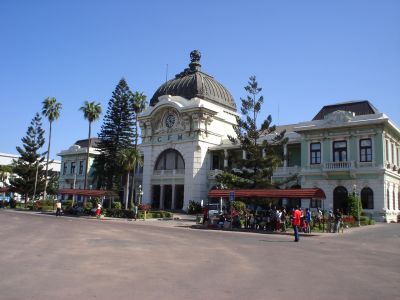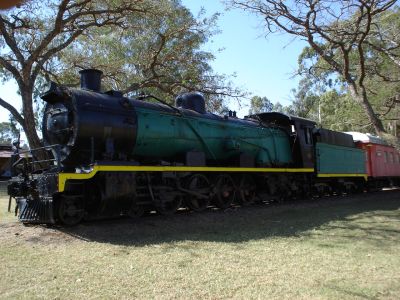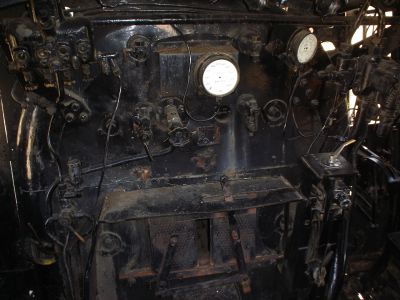« Steam in East Africa - 1 | Main | Footplating Beyer-Garrats »
May 28, 2007
Steam in East Africa - 2
Steam Locomotives of East and Southern Africa
This page contains some photos I have taken during my recent travels overland through Africa. I thought that they might be of interest to other steam-railway and railroading fans. You can click on any of the photos to get the full-sized image in a new browser-window.
If you wish to place one or two (!not all!) images on your own non-commercial site, please download and save them on your server. DO NOT hot-link to them. The condition of use is that you include a link back to this page, and that they are not used commercially. For any other use, please contact me for permission and prices.
Hwange Colliery, Zimbabwe
Bulawayo Railway Museum, Zimbabwe
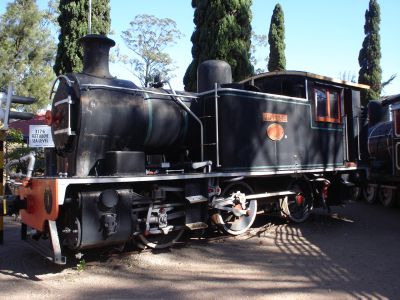
Loco no.1 'Rhodesia' 0-6-0 Weight 36 tons. Built by Hudswell, Clarke and Co. in 1929 for GBP3830 for service at Beira Port.
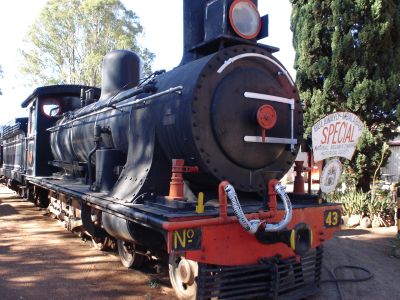
No. 43, the oldest loco in the museum that is still allowed to steam on occasions. 4-8-0 built by North British Locomotive Works in 1903. Cost GBP 3153. Weight 83 tons.
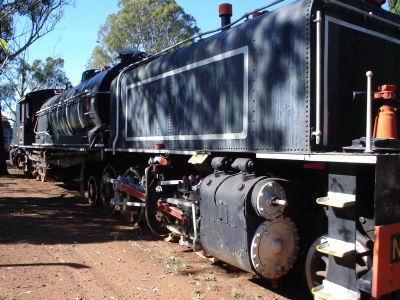
No.600 built by Beyer Peacock and Co., England in 1929. 2-8-2/2-8-2. Tractive force 52,364lb. Cost GBP 12467. Weight 159 tons. Mileage 1,621,994.
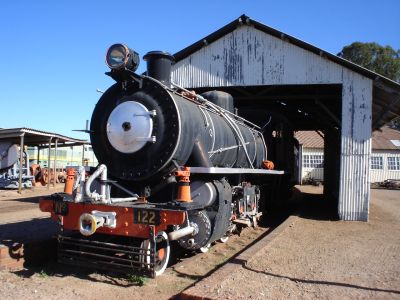
Loco no.122. 4-8-0. Tractive force 29,750 lb. Built by American Locomotice Corporation in 1917. Cost GBP 8067. Weight 111 1/4 tons. Mileage 1,279,804.
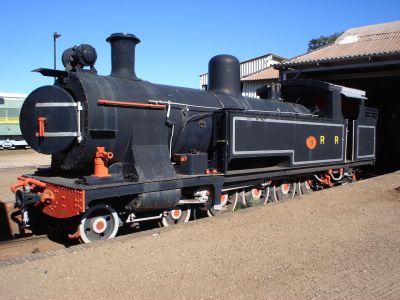
Loco no.19. 4-8-2. Tractive force 18,660 lb. Built by Nelson Reid and Co. in 1906. Cost GBP 3830. Weight 59 1/2 tons. Mileage 1,107,778.
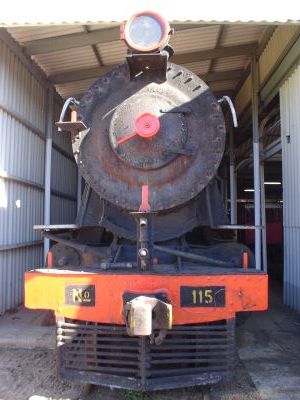
Loco no.115. 4-8-0. Tractive force 28,900 lb. Built by North British Loco Co. in 1912. Into service 3rd No 1917. Cost GBP 8,124 6s 0d. Weight 108 tons. Mileage 2,084,819 km.
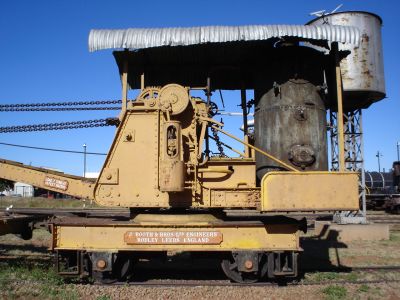
Crane no. R.R. 14. 7 ton capacity steam travelling crane. Built by J. Booth and Bros. Ltd., Leeds, England. Put into service at Beira in 1913 and transferred to Rhodesia in 1933.
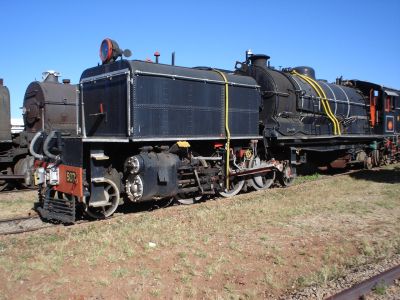
Loco no.507. 2-6-2 x 2-6-2. Tractive force 39,168 lb. Built by Beyer-Peacock and Co., England in 1929/30. Into service 12th March 1930. Cost GBP 10,634 3s 2d. Weight 125.35 tons. Mileage 2,282,150 km.
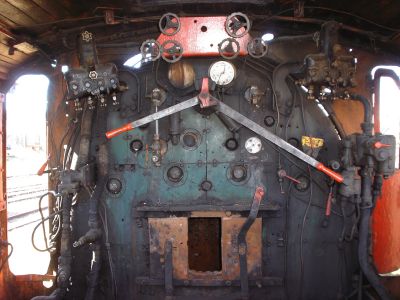
Footplate of no.507 showing some canibalisation for the working locos in the Steam Yard at Bulawayo.
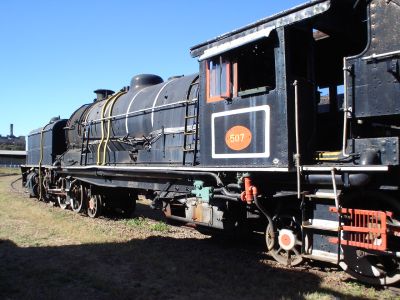
Forward-facing view of no.507 showing some canibalisation for the working locos in the Steam Yard at Bulawayo.
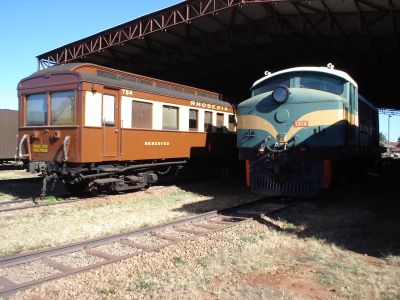
General Manager's Coach no.754 - originally no.89049. One of the two private saloons, the other being no.753 - the Governor's Coach, originally no.89048. Built by Cravens Railway Carriage and Wagon Co. for the Mashonaland Railways. Into service 1929. Cost GBP 7,212 4s 3d each. No info on the loco no.1314 also in the photo.
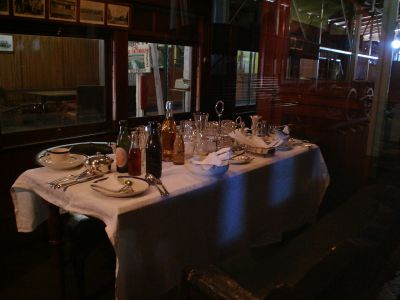
Internal view of Cecil Rhode's Private Saloon, here set for dining. This saloon was also used for his funeral. Purchased by de Beers Consolidated Mines Ltd. from Pulman Palace Company, Chicago, U.S.A. for GBP 2,650 14s 9d. Presented to Rhodesia Railways in 1944.
I just love the odd and eccentric - mainly because I am odd and eccentric myself! The following example was spotted in a manual of regulations for the 'C.G.R. and Rhodesia Railways, Vryburg to Gwelo and Wankie Line' at the Bulawayo Railway Museum...
Special Rates for Articles of Light Weight - Frail packages, and packages which are very bulky in proportion to their weight, are charged 50 per cent. more than the ordinary Parcels Rates, such as :-
Articles (brittle) such as Glass or China,
Parcels containing..
Band-boxes and Paper Bonnet-boxes (Drapers, Milliners, and Hatters)
Barometers
Birds (Small - except Live Pigeons) alive in cases or cages
Birds and Animals Stuffed, Cases of
Bonnets (Straw)
Caneware
Clocks (Marble or Fancy), packed in cases
Flowers (Artificial)
Frames (Picture)
Furniture (Light)
Hat-boxes (Paper) loose or in crates
Lace, Packages of
Medicine, Single bottles of
Millinery (Light) or Feathers in Pasteboard Boxes
Moulding, Parcels of
Thermometers
Violins
Wedding Cakes
Wickerware
Whips (Driving)
Note - This Regulation does not apply to packages containing Bottles of Beer, Wine or Spirits, nor to Earthenware, Students' Drawings, Soft Felt Hats in hat boxes or crates, nor to similar traffic.
One wonders how this list was ever arrived at? How were these articles chosen in preference to other ones? Were there backhanders involved in the preparation of the list, or lobbying of officials, or favoured suppliers? I would think so, if only to justify such specific yet divisive categories. Why violins and not violas? Why wedding cakes but not Christmas cakes? Were barometers and thermometers frequently sent by the railways? This list generates more questions than answers for me, at least!
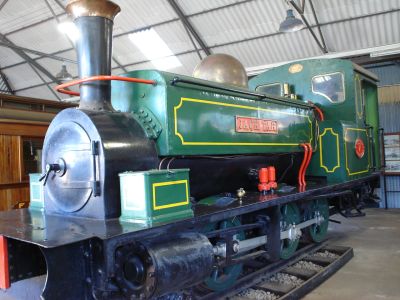
'Jack Tar' no.7. Small class locomotive. Built by Manning Wardle and Co. in 1896. Tractive force 7,160 lb. Weight 19 tons 1 cwt. Used on the construction of the Beira - Umtali line. First locomotive to operate in Zambia.
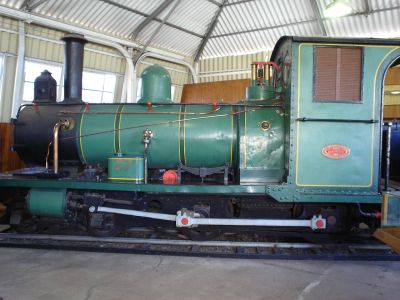
2'-0" gauge locomotive no.27. Built by Falcon Engine-Carriage Works in 1897. Tractive force 3,987 lb. Weight 20 tons 4 cwt. Used on the Beira - Umtali narrow gauge line.
Maputo Railway Station, Mozambique
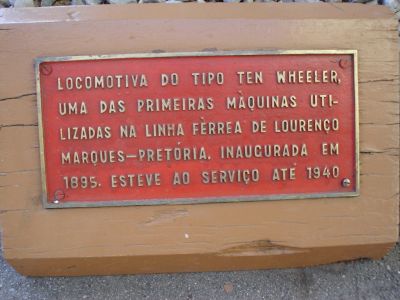
Information plate for loco no.9. My poor Portugese translates this as: Locomotive of the 10-wheeler type. One of the first machines used on the railway line from Lourenco Marques to Pretoria. Put into service in 1895. Was used until 1940.
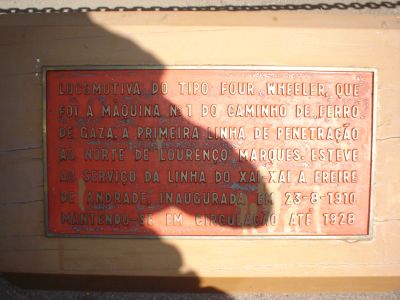
I translate this information plate as: Locomotive of the four-wheeler type, the first loco on the Gaza Railway, which was the first line to penetrate to the north of Lourenco Marques. ?Also served on the line to the Xai-Xai? Brought into service on 23-8-1910, continuing in use until 1928.
Talana Museum, South Africa
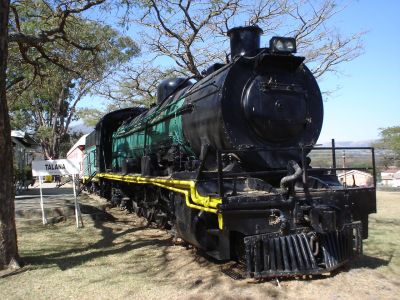
This loco was seen at the Talana Museum, Dundee, South Africa. I don't have any other information about it.
Posted by travellingtim at May 28, 2007 06:30 PM

